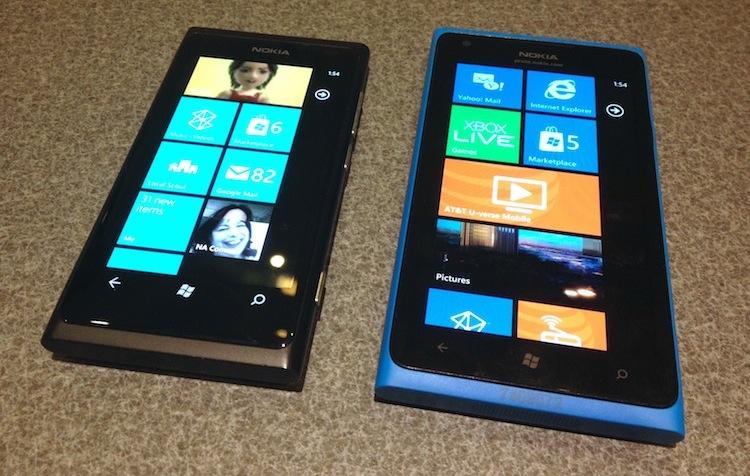
We've been keeping a rather close eye on Microsoft and their mobile platform, Windows Phone, as of late. The first year on the market was a semi-success for Microsoft. After 12 months on shelves, Windows Phone only managed to collect 5.2 percent of the US smartphone market. But Windows Phone had a rather large presence at CES last week, thanks to the Lumia 900 announcement and release of the Lumia 710 on T-Mobile. And Microsoft is prepping for a long year of heavy marketing and doing whatever they can do to make their platform a success. If I had to guess, I would say 2012 will be a good year for both Microsoft and Windows Phone.
In truth, the kind of attention Windows Phone has mustered in a single year is actually quite impressive for entering such a vicious market completely cold. Microsoft likely had higher expectations, but if you consider the adoption and growth rate of other platforms, Windows Phone is on a pretty good track, especially when it comes to developer support, which is proving to be a make or break in this industry.
It's early on, but some have questioned how Windows Phone can possibly compete amongst the big players like iOS and Android, and rightfully so. We thought webOS was going to be a huge success – it turned out to be anything but successful. After failing once, being bought and failing again, HP has finally decided to open source the software, for better or for worse. So the same question being asked of yet another promising platform isn't baseless. But Microsoft is in a good place, and so is Windows Phone.
With Microsoft's current model, Windows Phone will have a hard time failing. Don't get me wrong, though; there is still a chance of failure. There always is. But if Microsoft plays their cards right, Windows Phone has a much smaller chance of failure than your run-of-the-mill platform.
Why, exactly?
Google gives their software away for free and effectively makes no direct money off of the sales of phones running their software. Instead, their money is made off of ad impressions and the use of their array of services. Apple, of course, is the only company making any iDevices and thus makes all of their money directly off of sales. Microsoft, on the other hand, licenses their software and makes an undisclosed amount of money per phone that is sold, similar to their deal with PC manufacturers.
On top of that, though, Microsoft has butted heads with many Android partners in legal tiffs over infringed patents dealing with Android software. Just last week, Microsoft signed another patent license agreement with LG, marking the 11th Android manufacturer to sign such an agreement. This means that on more than 70 percent of Android phones sold in the US (which is a lot, in case you were wondering), Microsoft makes between $5 and $15 per unit.
Not only does this add money to Microsoft's cash flow, it's driving up the cost of using the Android platform – an operating system that would otherwise be free – for competing manufacturers. It's not exactly clear if any of these licensing fees would ever be enough to make OEMs abandon Android, considering the money made on a phone sale far exceeds that of any patent license fee they're paying to Microsoft. But it's certainly cutting into what would be profits. What that means for Microsoft, though, is that as long as Android is doing well and all of these OEMs are sticking with the little green guy, Microsoft is going to have a steady cash flow, regardless of how well Windows Phone is doing. And if they abandon ship, most of them only have one other platform to cling to: Windows Phone.
To date, Microsoft kept their golden number (the price of a Windows Phone license), on lockdown. Yesterday, however, a ZTE executive revealed to TrustedReviews that they pay between £15 (roughly $23) and £20 (roughly $31) per phone to license Windows Phone. When you consider all of the different manufacturers that are paying this fee (assuming other OEMs don't pay more), it's easy to see why Microsoft will continue to fuel money into mobile efforts. Their pockets are deep, and time is on their side.
I'm sure Microsoft has some Windows Phone overhead, and as Daniel of Phone Arena explains, it is believed that Microsoft's initial investment on the platform was roughly $1 billion. So to get back to ground zero, they still have some work yet. But once they've made that first billion back (which I imagine they can't be too far from with the licensing fees paid for both Windows Phone devices and Android handsets and tablets), they will be able to kick back and watch the money flow in, Windows Phone or no Windows Phone.
In essence, they can keep trying until they find something that works, almost entirely off of the success of another platform. Sure, it's sleazy, but it's working for them ... for now.